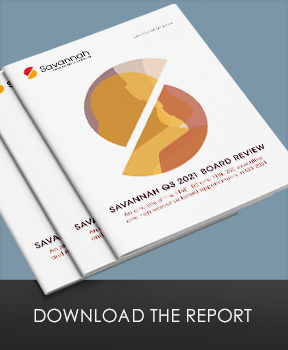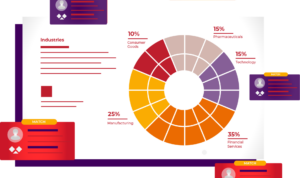An analysis of the FTSE 100 and FTSE 250 executive and non-executive board appointments in Q3 2021
INTRODUCTION
 The long-anticipated ‘Freedom Day’ came 19 days into the third quarter of 2021 in England, finally unleashing the British economy from the remaining shackles of Covid restrictions, albeit with numerous limitations still remaining on global travel. For many businesses, certainly in the sectors most affected by lockdowns, it was a moment of jubilation and relief that they could turn back to the recruitment market to reignite their growth plans following 18 months of stagnation.
The long-anticipated ‘Freedom Day’ came 19 days into the third quarter of 2021 in England, finally unleashing the British economy from the remaining shackles of Covid restrictions, albeit with numerous limitations still remaining on global travel. For many businesses, certainly in the sectors most affected by lockdowns, it was a moment of jubilation and relief that they could turn back to the recruitment market to reignite their growth plans following 18 months of stagnation.
But lest they get too excited, the economic bounceback, while still forging on, was dealt somewhat of a blow as growing demand and consumer confidence exposed lurking, unsolved problems in supply chains. Supply shortages are likely to last at least until the end of the year, causing the Bank of England to revise down its expectations for third-quarter UK GDP growth from 2.9% to 2.1%. The updated Q3 forecast is around 2.5% below the UK’s pre-Covid peak.
The Bank of England’s concerns also relate to inflation, with the central bank warning that consumer prices are likely to climb to 4% this year, double its target level, much of which can be attributed to the spike in energy prices which has caused the collapse of numerous small energy suppliers. Former Bank of England chief economist Andy Haldane described the current phase of Britain’s Covid recovery as ‘VILE’ (volatile inflation, low expansion). Contrary to market expectations, the Monetary Policy Committee of the Bank of England has voted not to raise interest rates. But it is likely there will still be an interest rate rise over coming months.
The impact of all of these trends on FTSE board appointments remains, by and large, to be seen. Through this quarterly board review of the latest appointments, however, we can keep track of how activity at this level of the market perhaps correlates with wider economic trends.
Q3 2021
SUMMER LULL OR GREATER TREND?
Falling in the middle of the summer months, Q3 is traditionally a quieter period for board appointments. While this might possibly explain why overall appointments across the FTSE 350 were down by 14% on the last quarter, it’s notable that appointments were also down 6% on the third quarter of last year. Following a thumping start to 2021, when there were 139 FTSE 350 board appointments in Q1, tracking 23% above 2020, the overall 2021 trend since then has been one of gradual decline in activity, with appointments in Q3 some 26 percentage points lower than Q1. Interestingly, however, overall FTSE 350 appointments in 2021 thus far (362) are still tracking 5% higher than the comparable period in 2020. All eyes are on Q4 to see if 2021 can maintain its lead over 2020.
There were 36 FTSE 100 board appointments in Q3, which was down 32% on the last quarter and 16% on Q3 2020, though up 44% on Q3 2019 when there were only 25 appointments. This highlights an interesting reflection point on the Covid-19 pandemic, which doesn’t appear to have impacted the frequency of FTSE board appointments nearly as much as the disruption and uncertainty that we all observed amidst the challenges of Britain’s exit from the European Union.
Perhaps most notably, executive director appointments in the FTSE 100 were low in Q3, with only seven appointments compared with 10 in the last quarter and 13 in the same quarter in 2020. NED appointments, though down on Q2 2021, were fairly static on Q3 2020 and up on Q3 2019.
FTSE 250 appointments, at 67, were also more in line with previous trends. This total is more or less static with Q3 2019 and 2020 as well. However, compared to Q3 2019 and 2020, the percentage of appointments that were executive directors has dropped from close to 25% to 10%.
Broadly speaking, this general differentiation across FTSE 100 and FTSE 250 appointments can be attributed to offsetting the activity of the previous quarter, which experienced a high number of appointments in the FTSE 100, especially among executive directors. Going into the final quarter of 2021, it will be interesting to note how trends settle as a full year, which will also allow us to draw more meaningful conclusions on market confidence.
NOTABLE APPOINTMENTS
Though FTSE executive director appointments in Q3 2021 were small in number, several grabbed headlines. The highest-profile executive appointment was of Charlie Nunn, who joined Lloyds Banking Group as its new CEO, replacing long-time boss António Horta-Osório. A former senior partner at McKinsey, Nunn’s most recent role was global head of personal banking and wealth management at HSBC.
Meanwhile, commodity trading and mining giant Glencore also bagged a new CEO in Gary Nagle, who was elevated from running the company’s coal assets division.
Following the closing of AstraZeneca’s acquisition of Alexion Pharmaceuticals, Alexion’s CFO Dr Aradhana Sarin took on the same role in the combined company, while also becoming an executive director. A trained medical doctor in India, prior to joining Alexion Dr Sarin worked in healthcare banking roles at Citi, USB and JP Morgan.
CFO appointments elsewhere included Bhavesh Mistry, who joined British Land from his two-year spell as deputy CFO at Tesco, and Lavanya Chopra, who was promoted to global CFO at Diageo following a stint as CFO of its North America region. Internet security firm Avast recruited Stuart Simpson as CFO from Royal Mail.
In the FTSE 250, former Tesco UK finance director Bruce Marsh joined Currys as Group CFO. Landscaping materials supplier Marshalls appointed Justin Lockwood as its new CFO, software firm Micro Focus recruited William Hill’s CFO Matt Ashley, and Grainger, the UK’s largest listed residential landlord, poached Rob Hudson to be its CFO from regeneration and logistics developer St Modwen.
Chair appointments in the FTSE 100 included former BTG CEO Dame Louise Makin, who became chair of Halma, the global group of safety equipment companies, having joined the board as NED and chair designate earlier this year. Glencore chose NED Kalidas Madhavpeddi as its new chair, while Mark Breuer took the chair at sales, marketing and support services group DCC, having been appointed chair designate in the previous quarter.
FTSE 100 energy supplier SSE welcomed two new NEDs to its board, and nomination committee, in the form of Debbie Crosbie, CEO at TSB Bank, and Dame Elish Angiolini, who is also a Pro-Vice Chancellor of Oxford University and Chancellor of the University of the West of Scotland. DCC also added two female NEDs: healthcare exec Laura Angelini and Essentra CFO Lily Liu.
Dame Carolyn Fairbairn, a former director-general of the CBI, joined HSBC as an independent NED and Hargreaves Lansdown signed Direct Line Group’s CEO Penny James as senior independent director, while IT consulting firm AVEVA welcomed Schneider Electric CFO Hilary Maxson onto its board and Ocado appointed Dr Nadia Shouraboura, a former Amazon VP. Lord Ian Livingston, chair of Currys, joined National Grid’s board along with Meggitt CEO Tony Wood and Martha Wyrsch.
GENDER REPRESENTATION
In our review of board appointments for Q2 2021, we expressed disappointment at the female representation among new appointees in both the FTSE 100 and FTSE 250. In particular, in Q2, it was disheartening to see just one female executive director appointment across the entire FTSE 350. We are pleased to report that Q2 is likely to have been a blip, though it must be said that the overall progress in relation to women on boards remains far too weighted to NED appointments.
In the third quarter of 2021, there were two female executive director appointments in the FTSE 100 which, at 29%, represents a larger proportion of the total than the previous quarter in 2021 and both Q3 in 2019 and 2020. Meanwhile, there was only one female executive director appointment in the FTSE 250, but again this represented a larger proportion (17%) than the preceding quarter this year and the directly comparable quarters in 2019 and 2020. These percentages are still far too low, but at least represent progress compared with prior quarters.
As we have come to expect as more normal now, NED appointments across the FTSE 350 were majority female, with 16 (55%) in the FTSE 100 and 34 (56%) in the FTSE 250. Again, overall, women were better represented than in comparable quarters, all of which highlights a positive quarter for gender diversity, though clearly still with much work to do in the ED space.
The unfortunate gender diversity disparity between executive director and NED appointments, which we report frequently in our quarterly board reviews, was also flagged as a concern by Cranfield School of Management in its recently released Female FTSE Board Report 2021. The research found that, while the number of women on FTSE 100 and FTSE 250 boards continues to rise (by 38% and 35% respectively), the growth is entirely attributable to NED appointments.
Indeed, 44% of NEDs on FTSE 100 boards are now women, an all time high, but meanwhile the percentage of female executive directors has flatlined for a second year at 13.7%. In the FTSE 250 it’s even lower, with women accounting for just 11.3% of executive directors. Cranfield School of Management also noted considerable variance between companies, with 21% of FTSE 100 companies and 32% of FTSE 250 companies yet to meet the Hampton-Alexander Review’s target of 33% women on boards. This will raise questions about whether further measures are required to encourage low-performance businesses to do more for diversity.
As with all of our reports, our primary source is BoardEx and we edit the raw data to exclude, for example, internal promotions such as NED to SID and non-independent representative appointments. We prepare these reports as a contribution to the corporate governance debate which we are always happy to engage on.




